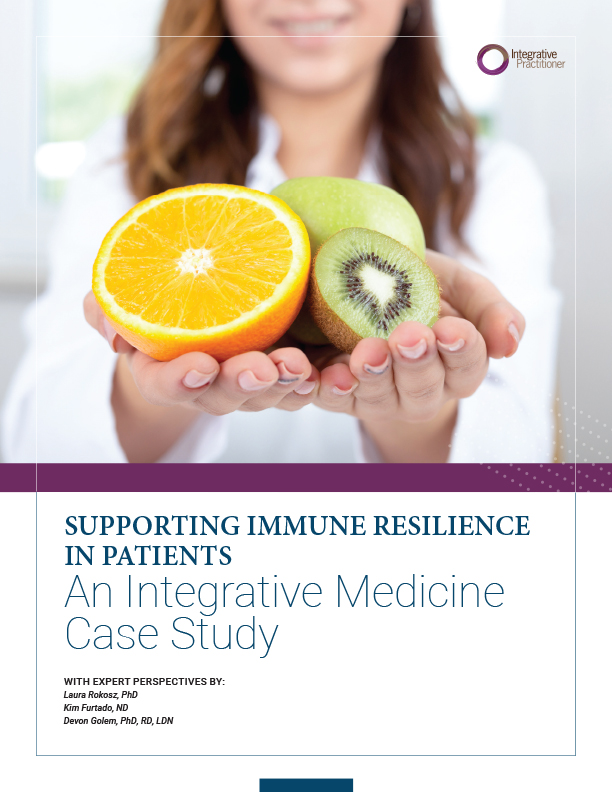Recent
July 23, 2024

Presented by: Lyn Patrick, ND
The Centers for Disease Control and Prevention’s (CDC) Fourth Report on Human Exposure lists 126 toxicants that are found ubiquitously in the North American population, about 50 percent of all they test for. All these pollutants have been linked to disease processes. This talk will focus on four of the most damaging compounds: air pollution, bisphenols, phthalates and perfluorocarbons. All of these are found in virtually everyone and are causally linked to the biggest chronic diseases now epidemic in modern society.

Presented by: Karen Fink, BSN, RN, HNB-BC, LMT, CLL
In our stress-filled work and personal lives, health professionals are called to promote self-care. As we fill our mind, body, and spirits, we can be present as the instrument of healing for our clients and colleagues. Evidence supports the use of laughter in many forms to promote health, physiological benefits, positive effects on the mood and emotions, building of community, increasing self-efficacy, enhancing patient care, and improving quality of life. Gelotology, is the study of laughter and links with the fields of psychoneuroimmunology and positive psychology and shines a light on “simulated laughter” versus “spontaneous laughter.
This presentation is a combination of didactic, experiential laughter exercises, group collaboration, and reflection on the holistic self-care, in the context of Pender’s Health Promotion Model. Participants will formulate a self-care plan/contract and an action plan to disseminate the knowledge, techniques, and skills to their client/patient population and peers.

Presented by:
Robert Rountree, MD
For many years, mainstream textbooks typically characterized irritable bowel syndrome (IBS) as a psychosomatic disorder with a strong emotional component. Sophisticated molecular diagnostic techniques combined with genomic analysis have now shown that IBS is not a simple “functional” disorder. Rather, it is a multifactorial condition with several prominent overlapping subtypes, including dysbiotic, inflammatory, postinfectious, and neurochemical subtypes. This presentation will use the lens of system biology as way to tie together all these seemingly disparate elements into a cohesive diagnostic and treatment strategy when within scope and know when to refer when out of scope.
This presentation was recorded at the 2022 Integrative Healthcare Symposium Annual Conference.

Presented by: Marc Grossman, OD, LAc
What is “natural eye care?” This session will discuss the vision-whole body-brain connection, identify where Western medicine is today on whole-body approaches, and review major eye pathologies including macular degeneration, myopia and computer eye syndrome, glaucoma, diabetic retinopathy, eye floaters, and cataract.

Presented by: Yael Joffe, PhD, RD, FACN
In a 2019 poll, 74 percent of practitioners did not know which genetic test to trust. In this presentation, different types of genetic tests in the marketplace will be explored. The basic principles needed to understand these tests will be defined and questions to ask when choosing a genetic testing partner will be identified. By the end of the presentation, attendees will have the insight necessary to evaluate the clinical value genetic tests will offer to patients.
This presentation was recorded at the 2022 Integrative Healthcare Symposium Annual Conference.


Presented by: Neil Skolnik, MD
This presentation will provide an overview of the scientific evidence supporting the utility of exercise in maintaining health and decreasing the risk of chronic diseases including diabetes, hypertension, cancer, coronary heart disease, and depression. In addition, the evidence showing that exercise can mitigate the risk incurred by diseases like diabetes and hypertension will be reviewed. Finally, a practical approach for discussing exercise with patients/clients and helping patients achieve successful outcomes with lifestyle modification will be presented.

In light of the novel coronavirus (COVID-19), many patients are tuned in to the importance of building immune system resilience. Whether someone is considered at-risk or simply wants to maintain their health, there are several steps practitioners can suggest to put patients in the best position to prevent or overcome illness, and achieve optimal health throughout life.

The Microbiome: The Link Between Nutrition and Pain